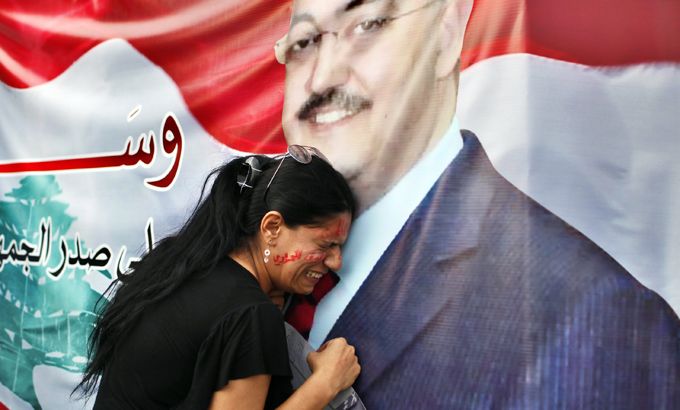
Lebanon: Spiralling out of control?
As anti-Syrian tensions rise over the murder of Lebanon’s intelligence chief, we examine the country’s sectarian divide.
As Lebanon buries its latest high profile assassination target, intelligence chief General Wissam al-Hassan, many are pointing fingers of blame towards Syria, making connections to the uprising there. Others remain fearful that the murder will heighten Lebanon’s own sectarian tensions.
|
“The real issue here is: people are asking this government to come down, to resign. Because what happened is a very important indication that this government has failed politically, economically and security-wise to protect the people, to protect the country.“ – Amal Mudallali, a political advisor |
Thousands of opposition supporters have turned out for the funeral of the top intelligence official who was assassinated in a car bombing in Beirut, Lebanon’s capital, on Friday.
General Wissam al-Hassan is to be buried in the mausoleum of his mentor – Rafik Hariri, the former prime minister who was also assassinated in 2005.
Security was tight for the occasion in Beirut’s Martyr’s Square but anger spilled over, with protesters clashing with security officers and gunfire reported as they tried to storm the prime minister’s office.
Friday’s explosion was the first such attack in the capital since 2008. General al-Hassan was among three people killed and dozens of others were injured by the powerful blast.
Al-Hassan headed an investigation over the summer that led to the arrest of Michel Samaha, the former information minister and one of Syrian President Bashar Assad’s most loyal allies in Lebanon. He also led an investigation which implicated Syria in the assassination of Rafik Hariri.
|
“Surely today is a sad day for Lebanon, but the calls by some – not a majority necessarily – on the government to resign will not solve the problem …. Government resignation will create a void in the political system and that will tend to worsen the political situation and the economic situation and that will not get us anywhere.“ – Naim Salem, a professor at Notre Dame University |
While he did not have a political role, he was allied with the anti-Syria opposition and he was seen as a supporter of the mainly Sunni rebels fighting to oust the government of Bashar al-Assad in Syria.
Even before the bombing, the conflict in neighbouring Syria had served to deepen tensions between supporters and opponents of al-Assad’s regime and there are fears that Lebanon could easily plunge back into cycles of sectarian violence and reprisal that have haunted it for decades.
So, will the murder of al-Hassan heighten sectarian tension?
Inside Story, with presenter Teymoor Nabili, is joined by guests: Naim Salem, a political analyst and professor at Notre Dame University in Lebanon; Amal Mudallali, an advisor to Saad Hariri and a senior scholar at the Wilson Centre; and Nicholas Noe, the founder of Mid-East wire, a news website. He was also the editor of the book Voice of Hezbollah – The Statements of Sayyed Hassan Nasrallah .